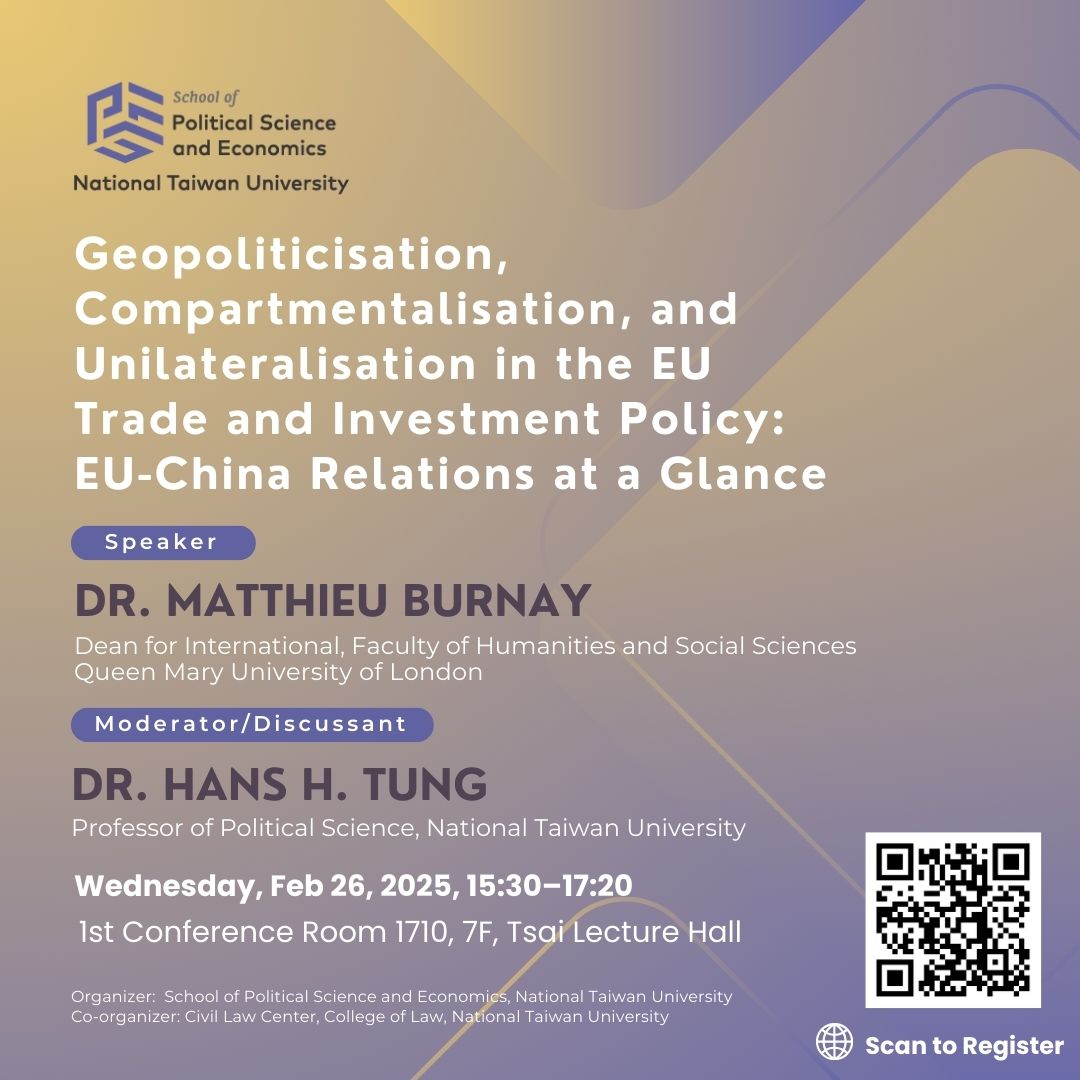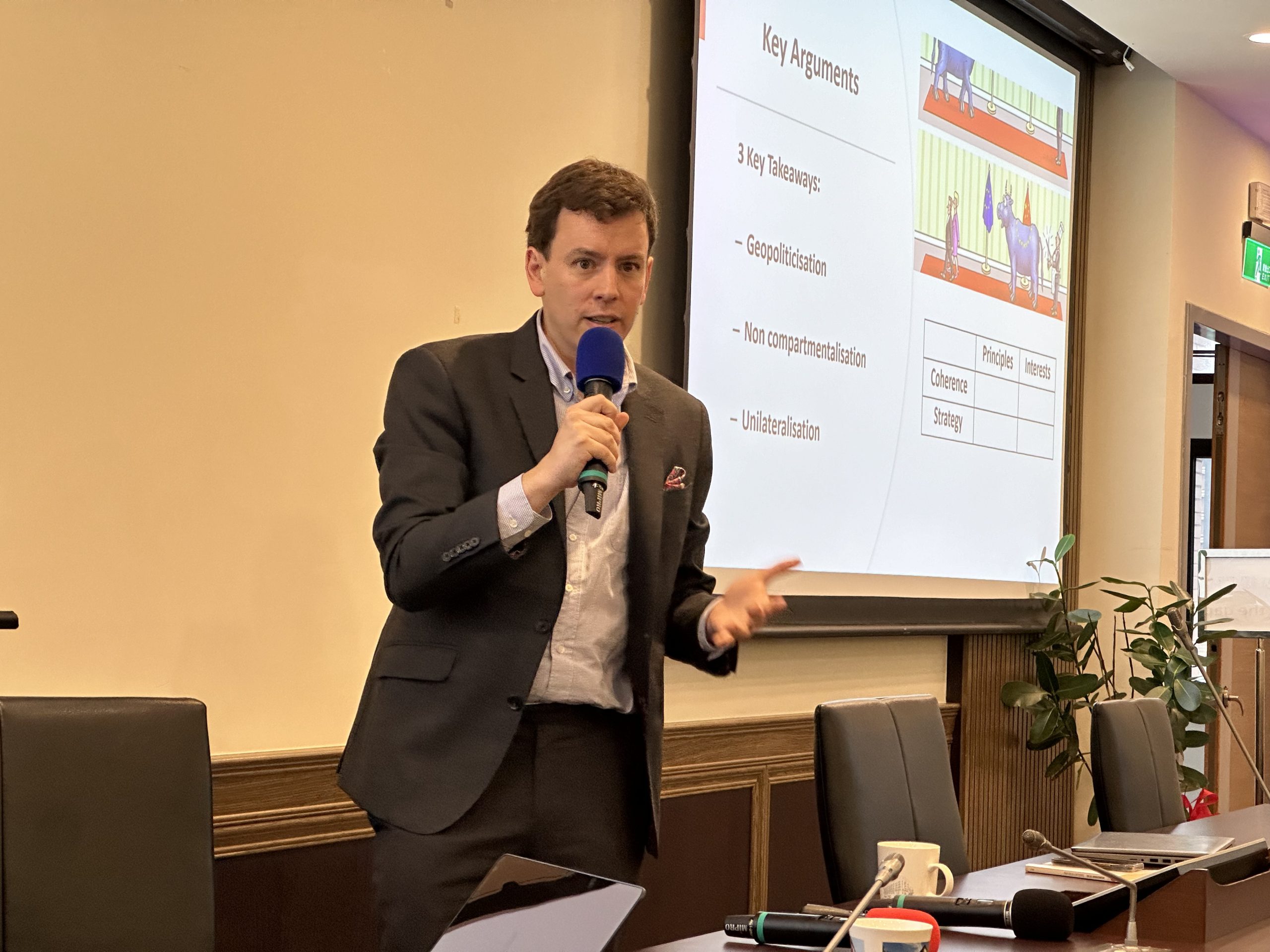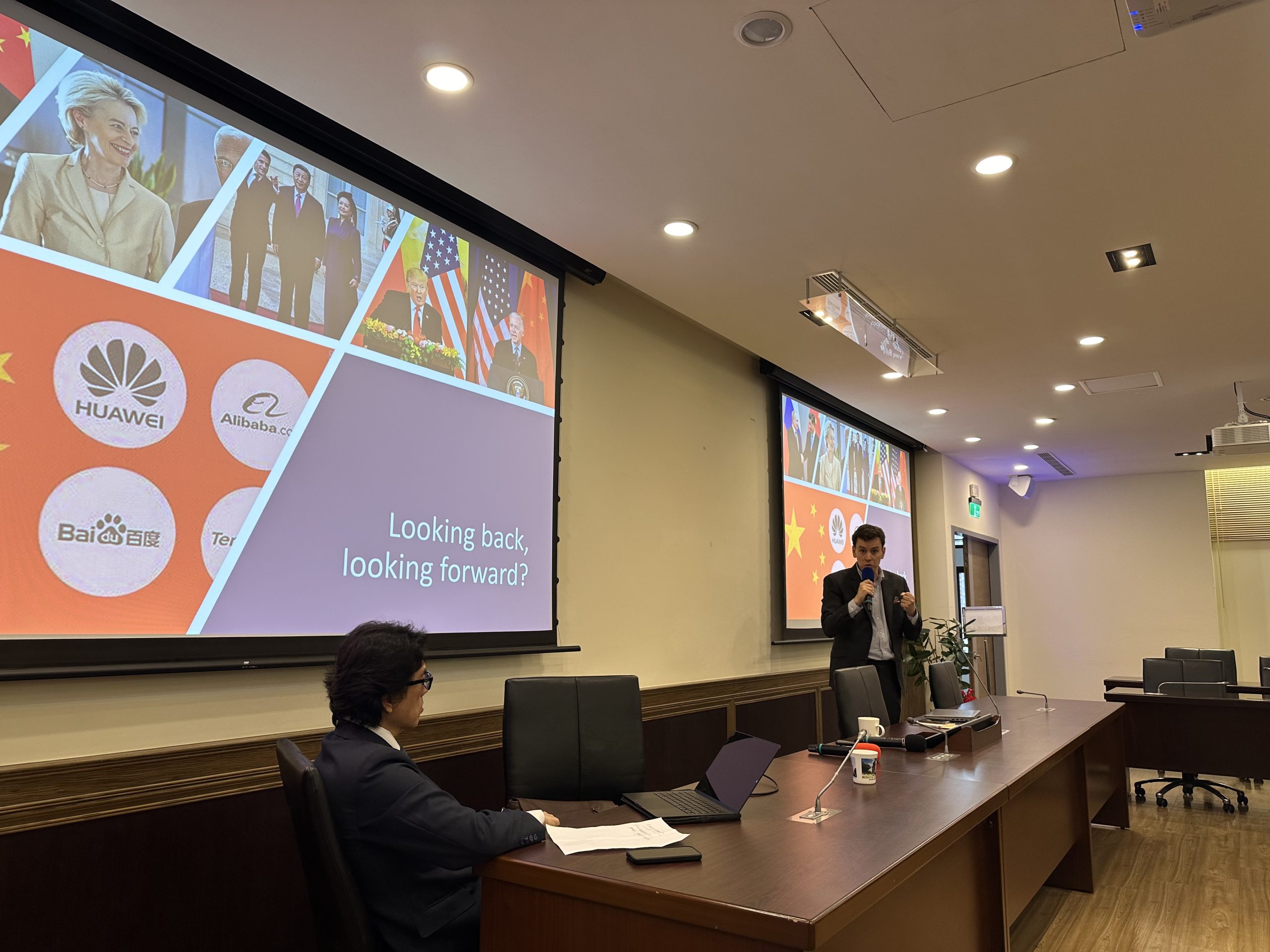
SPE Lecture Talk: 2/26 afternoon on “Geopoliticisation, Compartmentalisation, and Unilateralisation in the EU Trade and Investment Policy: EU-China Relations at a Glance”
On February 26, 2025, the School of Political Science and Economics and the College of Law at National Taiwan University co-hosted a thought-provoking seminar titled “Geopoliticization, Compartmentalization, and Unilateralization in the EU Trade and Investment Policy: EU-China Relations at a Glance.” The event featured a keynote lecture by Dr. Matthieu Burnay, Reader in Global Law, Dean for International, Faculty of Humanities and Social Sciences, and an internationally recognized expert in global law and governance, as well as in the legal aspects of European Union (EU)–People’s Republic of China (China) relations. The seminar opened with welcoming remarks from Dr. Hans H. Tung, a Professor of Political Science at National Taiwan University, who underscored the importance of the discussion as EU-China relations continue to evolve amid shifting geopolitical dynamics.
In his presentation, Dr. Burnay examined the evolving relationship between the EU and China. He traced the history of EU-China relations, highlighting a shift from initial optimism about European unity contributing to global improvement to a more complex and increasingly strained relationship in recent years.
Dr. Burnay identified three key takeaways to illustrate contemporary EU-China relations: geopoliticization, non-compartmentalization, and unilateralization. Geopoliticization refers to the increasing influence of geopolitical considerations on EU-China relations (including their engagement with the US). Non-compartmentalization emphasizes the interconnectedness of various aspects of the relationship, making it challenging to isolate specific issues (for instance, trade and investment cannot be separated from other issues such as human rights). Unilateralization signifies the growing trend of both sides employing unilateral measures and sanctions that complicate bilateral interactions.
According to Dr. Burnay’s observations, the EU’s approach towards China has evolved from viewing it as a partner to seeing it as an economic competitor and systemic rival. The EU further underscores China’s significance as a “key state actor of concern” after Russia. Today, the EU’s strategy emphasizes “de-risking,” aiming to reduce economic dependencies and address security concerns related to China’s growing influence, particularly in areas such as innovation, decarbonization, and supply chain resilience. However, he pointed out that it is challenging for the EU to “decouple” from China since the EU’s dependency on China has increased in recent years.
Moreover, Dr. Burnay highlighted EU-China relations in the context of multilateralism. At the multilateral level, the EU and China share common interests and collaborate in various regulatory fields, such as climate change, environmental protection, and sustainable development. Nevertheless, Dr. Burnay also noted the impact of unilateral actions, such as the EU’s sanctions on Chinese officials over human rights violations in Xinjiang, and China’s subsequent counter-sanctions based on its 2021 Anti-Foreign Sanctions Law. China’s retaliatory sanctions ultimately barred the EU Parliament from ratifying the EU-China Comprehensive Agreement on Investment, highlighting the breakdown of multilateralism and the rise of protectionist measures. The EU’s foreign investment screening mechanism and China’s national security review system are also examples of this trend.
Finally, the presentation discussed the EU’s anti-subsidy and anti-dumping investigations concerning Chinese imports, particularly in the battery electric vehicle sector. The ongoing trade tensions demonstrate the complexity and challenges of the EU-China relationship. The presentation concluded by noting the potential for further escalation of unilateral actions, highlighting the unpredictability of the future and a potential “Trump 2.0” scenario affecting global relations.
The School of Political Science and Economics and the College of Law at National Taiwan University extend their gratitude to Dr. Matthieu Burnay for his insightful presentation.



Speaker: Dr. Matthieu Burnay
(Dean for International, Faculty of Humanities and Social Sciences, Queen Mary University of London)
Moderator/Discussant: Dr. Hans H. Tung
(Professor of Political Science, National Taiwan University)
Date: Wednesday, February 26, 2025
Time: 15:30–17:20
Venue: 1st Conference Room 1710, 7F, Tsai Lecture Hall霖澤館(Google map pin)
Organizer: School of Political Science and Economics, National Taiwan University
Co-organizer: Civil Law Center, College of Law, National Taiwan University
Registration: https://forms.gle/xwQY1KK9wYfy7Pua6